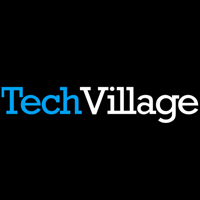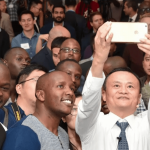Zimbabwe celebrated its 38 years of independence on 18th April 2018. This was unique one from all the previous ones. This is because it was the first ever celebration the country made under different president apart from Robert Mugabe. The 2018 celebration came when President Emmerson Mnangagwa is barely five months old into office. We, therefore, take a look at the country technology startup ecosystem under the new president. We are also going to look at the different challenges faced by tech startups in the country.
The launch of ICT Innovation Drive
This is one of the biggest development to happen in Zimbabwe’s tech startup ecosystem under the new regime. Launched in March 2018, ICT Innovation Drive got 188 applications from startups. From the 188 startups, six of them were shortlisted for funding. The initiative is part of a $25 million fund run by the Zimbabwean Ministry of ICT. The funding received by the six will be free from equity and it will come in form of business loans. Furthermore, they will receive mentors who will help them with business support and coaching. The amount of funding is yet to be announced by the ministry.
The ICT Innovation Drive came to limelight for the first time in 2016 through Supa Mandiwanzira the Minister of ICT. The application for startups was made by the Postal and Telecommunication Regulatory Authority of Zimbabwe (Potraz) announced the application for startups in 2017. A duty of 1.5% on the annual total revenue contribution from mobile network operators NetOne, Econet and Telecel are used in the financing of the initiative. The main goal of the initiative is to fund tech startups and develop innovation hubs across the country.
In the last five months, many international investors have shown interest in Zimbabwe’s tech startups. In March 2018 a delegation of EU ambassadors from Sweden, Portugal, France, Netherlands, Romania, and Britain visited The Tech Village. The Tech Village is a tech hub based in Bulawayo Zimbabwe. The goal of the visit was to meet entrepreneurs so as to learn about opportunities and challenges that local startups are facing. The same hub was visited by Danai Musandu in January 2018. He is an investor in Goodwell Investment based in Amsterdam. Goodwell Investment has 20 million pound fund for the growth of startups across Africa. The aim of the visit was to source for investment opportunities in the local startups.
In 2017 three legal startups from Zimbabwe were shortlisted for the regional finals of the Hague Institute for Innovation of Law (HiiL) annual Innovative Justice Challenge. The three were Zimbabwe Environmental Law Association, Road Rules, and Transparency International Zimbabwe. Khoyn startup was amongst the 10 finalists shortlisted for the Startupbootcamp accelerator. MyRunner was recently showcased at the Seedstars World Summit. The summit happened between 9th and 13th April 2018 in Lausanne, Switzerland. This came after the startup emerged the winner of the Zimbabwean leg of Seedstars Africa tour. This took place at the Impact Hub in October 2017.
According to Vusumuzi Mkhwanazi, the CEO and founder of MyRunner, the local startups are making a good progress. But the funding process of most of the startups should be looked at. He says that the best time to fund the startups is during the first three months. Zimbabwe’s ecosystem is not in apposition to fully offer the needed support to the tech entrepreneurship. Entrepreneurs are left to stand on their own not receiving the much-needed attention. But the trend will come to an end the moment entrepreneurs become more exposed.
He added that the country’s policies are not favorable. He singled out the issue of developing strategic incubators and carrying out business in the country. The partnership between entrepreneurs with corporates or government is still not effective. He concluded that the only way for the success of the entrepreneurs in the country is through partnership.
The Tech Village founder, Takunda Chingonzo, lauded the launch of ICT Innovation Drive. He said that this is the first sign of the support the government is having towards the local startups. This has lead to several engagements between startup scene and the government in the recent months. For instance, private companies like Telone are on the run of wanting to get investors. Furthermore, Ministry of Women and Youth Affairs is looking at ways on how it can engage the young innovators.



